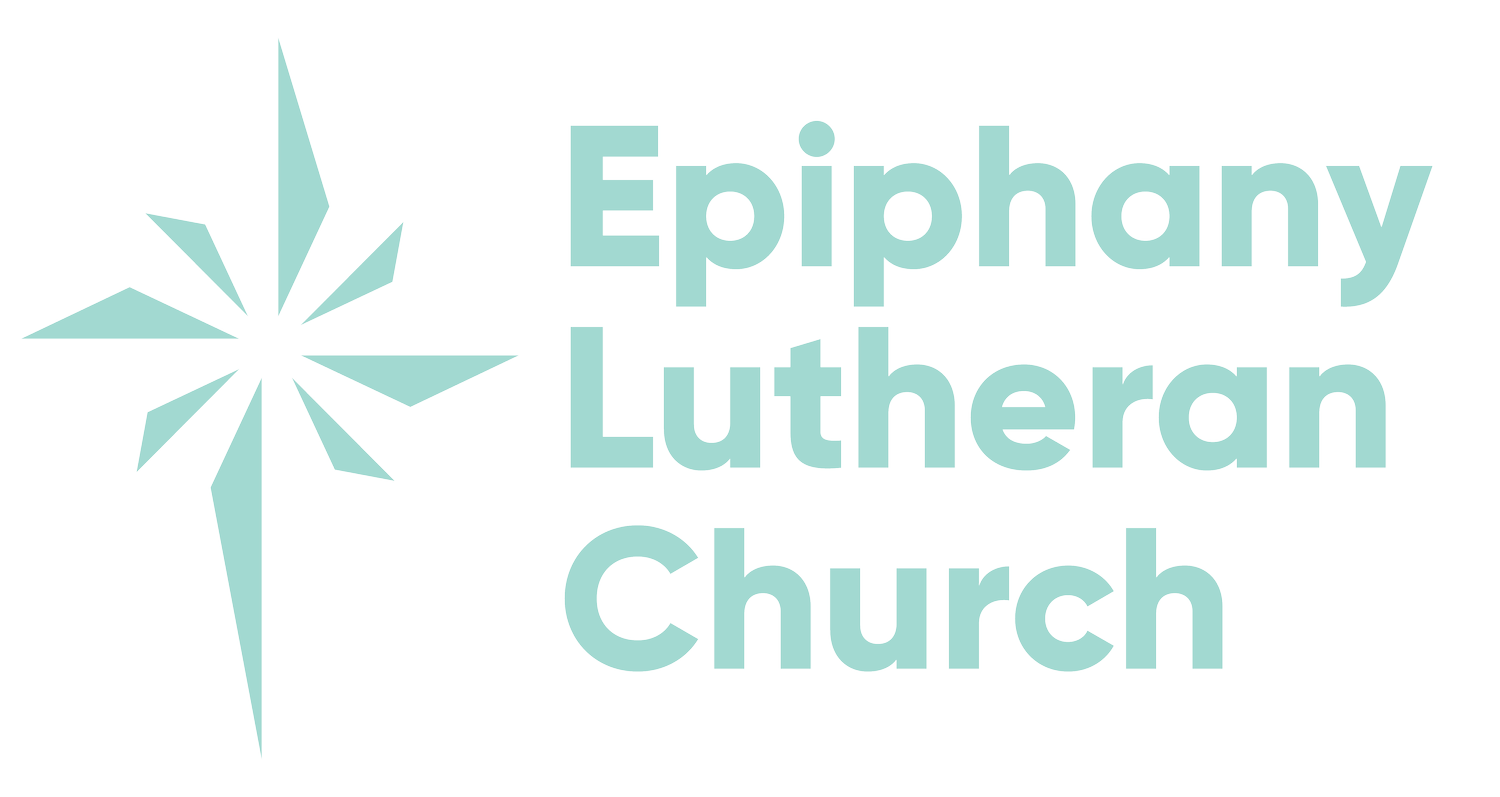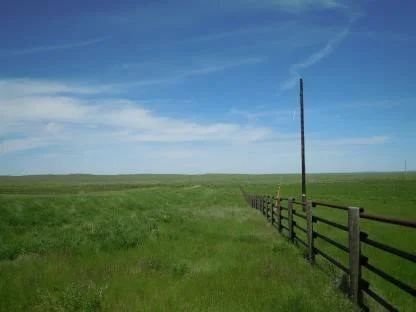September 1, 2024
Pentecost 15 (Lectionary 22) , Year B
Song of Solomon, Psalms, Isaiah, Romans 8:19-25
Epiphany, Winnipeg
Ten years ago I spent a few days at the Diamond Willow Retreat Centre in Southwest Saskatchewan, on a retreat with a handful of Lutheran University Chaplains from across Western Canada. Diamond Willow is down towards the southwest corner of the province, sort of on the eastern edge of the Cypress Hills, a few hours from Swift Current.
Now you can see from this picture that it’s not necessarily my usual or my preferred landscape. I live on the prairies and yes, I can say with almost wholehearted honesty that there’s something beautiful about them, but my real love is the mountains. The view here, at Diamond Willow, is not a view of mountains. But I spent a few days in these rolling hills and found myself being changed somehow. We visited a place called Old Man on His Back, an area that preserves a rare piece of native prairie that has never been cleared or cultivated. It’s just wide open grassland, looking like it has for a long long time. All around there was wide open land, and rolling hills that kind of went on forever without forests and tall trees but instead with grass and scrub and cacti and heat.
One evening I sat on the back porch and looked out on the view from there: just a great stretch of low hillside that rolled along endlessly from north to south. As far as I could see there was no other human habitation in that whole wide landscape. It was beautiful. And I had this thought that I’d never had before: all of that beauty is not there for my viewing pleasure. Those hills aren’t there for me, and if I and my chaplain friends were to leave that place it would still be there, it would still have its own life and be its own place, and it would still matter deeply to our God who breathed it all into being.
That land I looked out on has so much beauty, and it matters so much to its Creator. I wasn’t quite sure how to put it at the time, and I’m still not sure, but all of this matters to the crucified and risen Christ. And whatever happened with Jesus – living and dying and rising again – that all didn’t just happen for me and that handful of chaplains there, the only humans for miles around, or only for the people. What happened in Jesus happened for those hills, and that grassland, and for the animals I could not see. What happened in Jesus happened for that landscape that went on and on…
A few days ago I heard a British writer named Robert McFarlane on CBC’s program, Ideas. He was talking about a recent trip he had been on in northwestern Quebec, where he had visited and spent some time on the Magpie River, or Mutehekau Shipu, as it is known in Innu. (My apologies to any Innu speakers!). Does that name ring a bell? Anyone remember why that river was in the news a few years ago? I couldn’t remember until a few days ago. This river flows in Northeastern Quebec and Labrador, and in February of 2021 it was granted by local governments the right of personhood. In other words, the river could be regarded as a living being with the same rights that people enjoy; rights that ensure their own safety, freedom, independence, and value. The river is not a resource or a piece of property any more than you or I are. It’s a living thing, a person.
So when this speaker would talk about the river, he would talk about it this way: “This River who flows through Northeastern Quebec…” Or he talked about other rivers close to his own home and said, “The river who flows to the sea,” “The river who flows through the mountains where I hike,” and if we were to do the same we might talk about the Assiniboine and the Red, who meet just north of here…along with the people who have met and still do at that place just north of here.
Now this might sound kind of flaky or new-agey, or it might not. But our faith tradition is rich with this way of seeing the world around us, as living and breathing with a voice of its own. So we sing things like this: “Earth and all stars, loud rushing planets, sing to the Lord a new song.” Or this: “All creatures worship God most high,” or it might be more familiar as “All Creatures of our God and King.” And then we say “Sing brother sun in splendour bright, sing sister moon and stars of night…Dear mother earth, so rich in care, praise God in colours rare…sing brother wind and fire…” And on Christmas Eve we celebrate the One who comes to bring peace on earth with a chorus we all know: “And heaven and nature sing, and heaven and nature sing.” With a voice of their own.
It’s all over the Bible too. When the prophet Isaiah talks about God’s people being brought back home to their land that they had been forced to leave, he says that the mountains will burst into song, and trees of the field will clap their hands. Creation, with a life given to it by God, will celebrate when people turn away from hurting each other and return again to caring for each other. Mountains will sing then, with their own voice. They’re alive!
And Psalm 19: “The heavens tell the glory of God, the dome of the sky proclaims the good work God is doing…Day pours out speech, night pours out knowledge…their words go to the end of the world.” In the book of Numbers a donkey is given a voice to speak – a voice of its own – to tell a prophet not to speak against God’s people, and in the gospel of Luke Jesus tells the powers that be that if the disciples are silenced and cannot proclaim the good news of the gospel, then the rocks themselves will shout it out. With a voice of their own.
Now back to Diamond Willow. On the last evening of the retreat I sat on the back porch of the centre looking out along those gentle rolling hills and I wondered about what I’d wondered about before, how Jesus’ living and dying and rising is for that landscape and for all of creation; not just for me.
As I sat there I also remembered, and I still need to be reminded now, that although that land looked empty right now that didn’t mean that no one ever lived there. There were people who called those hills and that landscape and all that unbroken prairie home for thousands of years; they lived their lives there, moving through that place, until people who look like me came along and tried to move them off the land and make them invisible, so that there would be room for people like me to come in and “own” the land and make a home. There are so many stories of indigenous people being starved and legislated and forced out of that place, and places close to home here. The beautiful landscape has a lot of stories to tell that are not beautiful stories.
At the same time, I looked and I knew that that landscape has its own troubles. We know what’s up with warming oceans and changing climate and extinct species and extremes of weather, and about our role in it all. The world around us, the air we breathe, mixed grass prairie in southern Saskatchewan, the river who runs north a few blocks from here, the deer who nibble on the hostas… All the landscapes, all of creation, have stories to tell that are not beautiful stories.
We heard this a few minutes ago: “We know that the whole creation has been groaning in labour pains until now.” That was written while Paul was talking about the suffering that he was living with, and the suffering that we all live with while we wait to see the promise of new life come to fulfilment. And two thousand years before our own environmental crisis he knew that creation was suffering too. Maybe you could almost imagine Paul – the apostle Paul, not me! – sitting on that same porch and turning his ear to the hills and saying, “Can’t you hear it? The land is groaning, it’s sad, it’s hoping and waiting to be made new, it knows that new birth will come, but right now it’s in pain and it’s calling out.”
And then Paul continues: “And not only the whole creation, but we ourselves…groan inwardly while we wait for adoption, for the redemption of our bodies.” We and all creation wait for our bodies, for the bodies of water, for the body of the land, for all creation – to be bought back, brought back again and made new in Christ. We’ll sing it in a few minutes, in a song written by Desmond Tutu: Victory is ours – ours with all creation – through God who loves us.
We work, of course, while we wait. But we wait in hope, because we have heard news of Christ crucified and buried in the ground like a seed...and we've heard news of Christ risen, walking out of a tomb and into a garden. And somewhere deep inside a promise has been planted in us that whatever is broken now will be brought back together and made alive again. In your life, in my life, in our life, in our countries and communities, on our prairies and mountains and in the water, in all of creation (and we’re creation too, right?).
We’re all connected, we and the rest of creation. And just as we struggle together, we will also live and be made new again. Together




